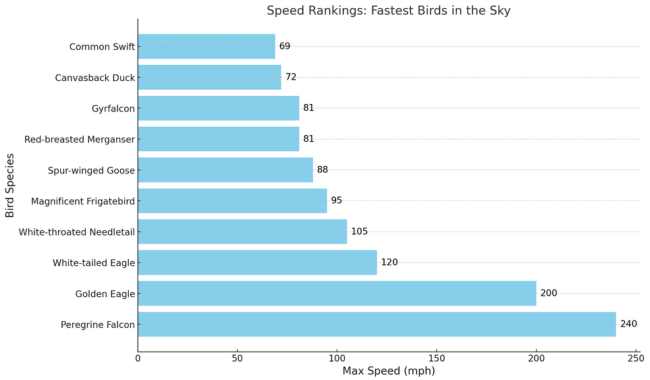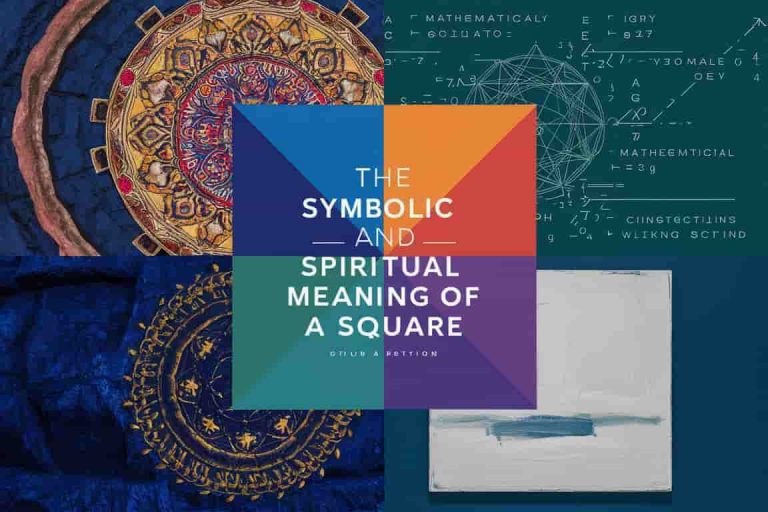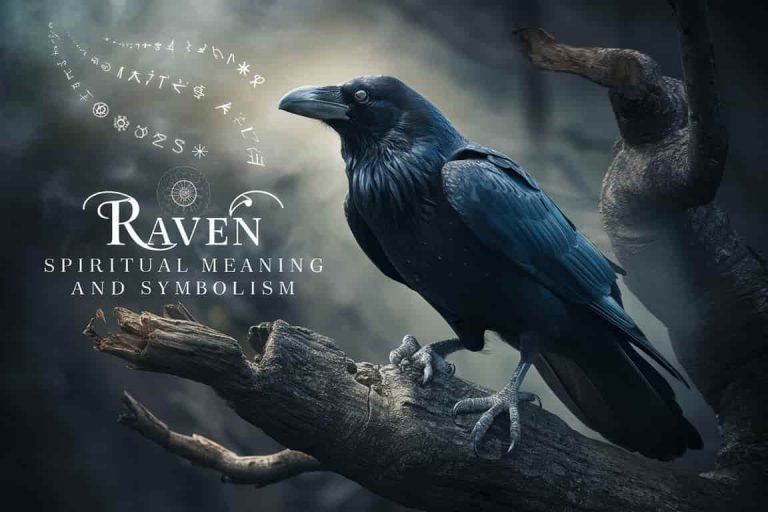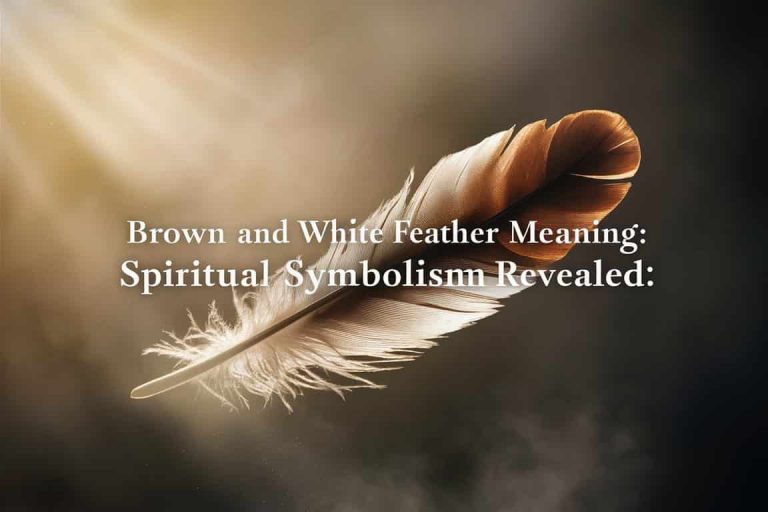Falcon Feather Meaning: Where Science Meets Symbolism

Welcome to a journey into the world of speed, symbolism, and the most majestic fliers in the animal kingdom. Today, we’re zeroing in on the fascinating tale of falcon feathers and what they signify. Falcons are often associated with speed, agility, and precision. Their feathers, likewise, hold a special significance in various cultures and spiritual practices. But first, let’s unpack the thrilling speeds of different birds, including the awe-inspiring Peregrine falcon, to understand why these winged creatures are often revered and what their feathers symbolize.
The Need for Speed: Fastest Birds in the Sky
Birds, the majestic masters of the sky, embody the essence of freedom and speed. With their unparalleled aerial abilities, these winged wonders glide, soar, and dive, leaving us spellbound. However, it’s essential to understand that not all birds are created equal when it comes to speed. Factors such as age, sex, and environmental conditions can greatly influence how fast a bird can go. To measure their speed accurately is often a Herculean task that usually involves scientific methods, such as radar guns and high-speed cameras.
Speed Rankings: The Comprehensive High-Flying List
Diving deeper into the subject, here’s an enriched list of some of the fastest birds along with their breathtaking speeds. These stats are not just mere numbers; they represent the epitome of aerodynamic mastery in the animal kingdom.

Peregrine Falcon: The Unmatched Speed Demon
The Peregrine Falcon is not just the fastest bird; it’s the fastest member of the animal kingdom. In its characteristic high-speed dive, this awe-inspiring raptor soars to an incredible height and then plummets at speeds exceeding 240 mph (386 km/h). Even during regular flight, it can reach speeds of more than 185 mph (300 km/h).
White-Throated Needletail: Speed in Level Flight
While the Peregrine Falcon dominates in diving speed, the White-throated Needletail holds the title for the fastest bird in level flight, with a top speed of 105 mph (169 km/h). It’s a close relative of the Common Swift, which is itself no slouch in the speed department.
Other Speedsters: Golden Eagles, Gyrfalcons, and More
- Golden Eagle: This majestic bird can reach speeds up to 200 mph (320 km/h) in a dive.
- Gyrfalcon: Known for its stamina and agility, the Gyrfalcon can hit speeds up to 81 mph (130 km/h).
- White-tailed Eagle: This eagle is not far behind, boasting top speeds of 120 mph (193 km/h) in a dive.
| Bird Species | Max Speed (mph) | Max Speed (km/h) | Flight Mode |
|---|---|---|---|
| Peregrine Falcon | 240 | 386 | Dive |
| Golden Eagle | 200 | 320 | Dive |
| White-throated Needletail | 105 | 169 | Level Flight |
| White-tailed Eagle | 120 | 193 | Dive |
| Gyrfalcon | 81 | 130 | Level Flight |
| Magnificent Frigatebird | 95 | 153 | Level Flight |
| Spur-winged Goose | 88 | 141 | Level Flight |
| Canvasback Duck | 72 | 116 | Level Flight |
| Common Swift | 69 | 111 | Level Flight |
| Red-breasted Merganser | 81 | 130 | Level Flight |
Factors Affecting Bird Speed: More Than Just Wings
Understanding the speed of birds is a complex endeavor, as it can vary due to a multitude of factors, which include but are not limited to:
- Age: Younger birds may not yet have developed the muscle power to reach top speeds.
- Sex: In some species, males and females have different body structures that can affect speed.
- Environmental Conditions: Wind direction, air pressure, and altitude can all impact a bird’s speed.
Measuring these speeds accurately often involves using advanced techniques like radar measurements and high-speed video capture, particularly during the birds’ high-speed dives or intricate flight maneuvers.
The Symbolism of Falcon Feathers
Now that we’ve laid the groundwork about the remarkable speeds of these birds, let’s dive into the symbolism of falcon feathers. In many cultures, falcon feathers are believed to carry spiritual significance. They are often associated with traits such as:
- Speed
- Precision
- Focus
- Vision
These feathers often appear in indigenous rituals, spiritual practices, and as tokens of honor. Their symbolism is deeply rooted in the falcon’s attributes, especially its unparalleled speed and agility.
Absolutely, let’s expand the “Historical Context” section to provide a more in-depth look at the various roles falcon feathers have played throughout history.
Historical Context: The Timeless Allure of Falcon Feathers

The allure of falcon feathers transcends mere aesthetics; it’s deeply rooted in history and tradition. From ancient civilizations to medieval battlefields, these feathers have served both practical and symbolic purposes.
Ancient Uses and Significance
Falcon feathers have been revered for centuries, not just for their beauty but also for their utility. In ancient times, they were used in arrows for their stability and accuracy. Their symbolic significance was also recognized in royal courts, where they were used in crowns and ceremonial attire. In ancient Egypt, for example, falcon feathers were associated with Horus, the god of the sky, and were considered sacred. Similarly, in Native American cultures, these feathers were often used in rituals and ceremonies to invoke the spirit of the falcon.
Falcon Feathers in Warfare
In medieval times, falcon feathers were often attached to the helmets of warriors. They were believed to offer protection and imbue the wearer with the falcon’s attributes of speed and focus. This practice was particularly prevalent among knights and nobility. The feathers were also used in the fletching of arrows, providing them with greater accuracy and range. In some cultures, carrying a falcon feather into battle was considered a good omen, believed to bring victory and honor.
Falcon Feathers in Religion and Mythology
Falcon feathers have also found their way into religious texts and mythologies. In Celtic folklore, the falcon is a symbol of visionary power and prophecy, and its feathers were used in druidic rituals. In Hindu mythology, the falcon is associated with Vishnu, the preserver god, and its feathers are considered auspicious.
Cultural Significance of Falcon Feathers
Falcons and their feathers have been revered across various societies, symbolizing everything from royalty to spiritual connection.
In Native American Culture

Native American traditions have a deep reverence for nature and animals, and the falcon is no exception. Falcon feathers hold significant cultural and spiritual symbolism:
- Spiritual Enlightenment: Falcons are often seen as messengers of the spirit world in Native American culture. Their feathers are used in rituals and ceremonies to invoke spiritual enlightenment and clarity. The swift and precise flight of falcons is seen as a metaphor for the journey of the soul towards higher consciousness.
- Higher Vision: The keen eyesight of falcons is believed to grant them the ability to see beyond the ordinary. Native Americans associate falcon feathers with the idea of seeing beyond physical appearances, perceiving hidden truths, and gaining deeper insight into one’s own path in life.
- Courage: Falcons are renowned for their fearless hunting and aerial acrobatics. Falcon feathers symbolize courage and the willingness to confront challenges head-on. They are often used in rituals to empower individuals with the bravery needed to overcome obstacles.
In Egyptian Mythology

Ancient Egyptian mythology prominently featured falcons, particularly the god Horus, who was often depicted with the head of a falcon. Falcon feathers held great significance:
- Sacred Symbolism: The falcon was associated with the sky god Horus, a deity of protection and insight. Falcon feathers were considered sacred and used in rituals to symbolize divine protection, especially against evil forces. They were seen as a means to invoke the watchful and all-seeing eye of Horus for guidance and safeguarding.
In Celtic Traditions
Celtic traditions held the falcon in high regard, particularly in the context of hunting and warfare:
- Bravery: Falcons are skilled hunters, and their feathers were often carried into battle as symbols of bravery and fearlessness. Warriors believed that by possessing falcon feathers, they could gain the courage needed to face their adversaries with honor.
- Tactical Intelligence: The hunting prowess of falcons was seen as a reflection of tactical intelligence. Celtic warriors sought the wisdom of falcon feathers to make strategic decisions in both hunting and warfare. These feathers were thought to enhance their ability to plan and execute successful endeavors.
- Agility: The agility and precision of falcons in flight were admired qualities, and falcon feathers were believed to bring agility and swiftness to those who possessed them. This could apply not only to physical agility but also mental and strategic nimbleness.
Falcon feathers carry diverse cultural meanings and significance across different societies. They symbolize spiritual enlightenment, higher vision, and courage in Native American culture; they represent divine protection and insight in Egyptian mythology, particularly associated with Horus; and in Celtic traditions, they embody qualities such as bravery, tactical intelligence, and agility.
These feathers have played an essential role in shaping cultural beliefs and practices throughout history.
| Culture | Symbolism of Falcon Feathers |
|---|---|
| Native American Culture | – Spiritual Enlightenment: Invoking clarity and higher consciousness. – Higher Vision: Seeing beyond the ordinary and perceiving hidden truths. – Courage: Symbolizing bravery and confronting challenges. |
| Egyptian Mythology | – Sacred Symbolism: Representing divine protection and insight, associated with the god Horus. |
| Celtic Traditions | – Bravery: Signifying courage and fearlessness in battle. – Tactical Intelligence: Enhancing strategic decision-making. – Agility: Bringing swiftness and nimbleness, both physically and mentally. |
Spiritual Practices Involving Falcon Feathers

Feathers from falcons are not just mere keepsakes; they’re often integral to various spiritual practices. From smudging ceremonies to meditative focus, these feathers serve multiple spiritual purposes.
Smudging Ceremonies
Smudging is a widely practiced ritual in various spiritual and indigenous traditions around the world. It involves the burning of sacred herbs, such as sage, cedar, or sweetgrass, and using the smoke generated to purify a person, space, or object. Falcon feathers play a crucial role in these ceremonies for several reasons:
- Symbolic Connection: Falcons are often seen as symbols of power, protection, and vision in many cultures. Their feathers are considered to carry the energy and qualities associated with these majestic birds.
- Energetic Assistance: The use of falcon feathers to waft the smudging smoke is believed to enhance the purification process. Practitioners believe that the feathers can help distribute the cleansing energy more effectively, ensuring that negative energies are driven out and positive energies are invited in.
- Balance and Harmony: The gentle and graceful movement of a falcon feather can create a sense of balance and harmony during smudging ceremonies. It can help the practitioner maintain a steady and focused flow of smoke, allowing for a thorough purification experience.
Talismans and Amulets

Talismans and amulets are objects that are imbued with spiritual significance and are believed to provide protection, luck, or other positive influences to the person who possesses them. Falcon feathers are often used in the creation of these sacred items for the following purposes:
- Positive Energy: Falcon feathers are thought to carry the inherent qualities of their bird of origin, such as keen vision and agility. When incorporated into talismans or amulets, they are believed to attract and amplify these qualities, offering the wearer a heightened sense of awareness and protection.
- Protection: The symbolism of falcons being powerful and vigilant hunters is often associated with protection. Falcon feather talismans are believed to ward off negative energies, psychic attacks, and other potential harm, serving as a shield for the bearer.
- Connection to Nature: Using falcon feathers in talismans and amulets also represents a connection to the natural world and its mysteries. This connection can enhance one’s spiritual journey and sense of oneness with the universe.
Meditation and Focus

Meditation is a practice that aims to calm the mind, improve concentration, and promote inner peace. Falcon feathers are utilized in meditation practices to assist in achieving these goals:
- Symbol of Focus: Falcons are known for their intense focus and precision when hunting. Meditators may use falcon feathers as a symbol of this focused attention, helping them stay mindful and centered during their practice.
- Energy Flow: In some meditation traditions, practitioners believe that the use of falcon feathers can help channel and direct energy flow within the body. Holding or gazing at the feather may facilitate the movement of energy, aiding in the meditation process.
- Visual Aid: Falcon feathers can serve as a visual point of focus during meditation. Gazing at the intricate patterns and details of the feather can help divert the mind from distractions and lead to a deeper state of meditation.
Falcon feathers hold a special place in various spiritual practices due to their symbolism, energetic qualities, and ability to aid in purification, protection, and focused meditation. Whether used in smudging ceremonies, as talismans, or as tools for concentration, these feathers play a meaningful role in enhancing spiritual experiences and connecting individuals with the spiritual world.
Found this interesting? We have more articles for you.
- Eagle Feathers: From Myth to Modern Symbolism
- Sparrow Feathers: Symbols of Simplicity and Protection
- Raven Feathers: The Symbolism of Transformation and Insight
- Symbolism and Meanings Behind Swan Feathers
- Turkey Feather Symbolism: A Legacy of Insight
- Owl Feather Symbolism: Unveiling Mystical Meanings
- Woodpecker Feathers: Symbolism of Opportunity and Persistence
Falcon Feathers in Modern Day
Even in today’s fast-paced, tech-driven world, the symbolism of falcon feathers hasn’t waned. They are still used in various forms of art, fashion, and even in modern spiritual practices. Whether it’s a feather tattoo symbolizing freedom and speed or a piece of jewelry invoking the falcon’s keen vision, the modern world continues to be enamored by the mystical allure of falcon feathers.
Ethical Considerations: The Dos and Don’ts
As we immerse ourselves in the deep symbolism and cultural significance of falcon feathers, it’s crucial to address the ethical considerations surrounding their collection and use.
Legal Restrictions
Many countries have stringent laws against the collection, sale, and possession of feathers from birds of prey, including falcons. This is to protect these magnificent creatures from poaching and illegal trade.
Ethical Harvesting
If you’re interested in incorporating falcon feathers into your spiritual or cultural practices, ensure that they are ethically sourced. Opt for feathers that are naturally molted and collected with proper permissions.
Cultural Sensitivity
It’s important to be aware of and respect the cultural significance of falcon feathers in various traditions. Unauthorized use of these feathers in sacred rituals can be seen as cultural appropriation.
Ethical Guidelines
| Do’s | Don’ts |
|---|---|
| Check Local Laws | Engage in Illegal Trade |
| Source Ethically | Disrespect Cultural Traditions |
| Obtain Necessary Permissions | Collect from Protected Species |
Falcon feathers captivate our imagination, symbolizing an array of virtues from speed to spiritual enlightenment. Whether it’s their unparalleled velocity or their rich cultural and spiritual significance, these feathers have captured the hearts and minds of people across ages and cultures. In this ever-changing world, the timeless symbolism of falcon feathers continues to soar, offering a profound connection to the natural world and its endless mysteries.






